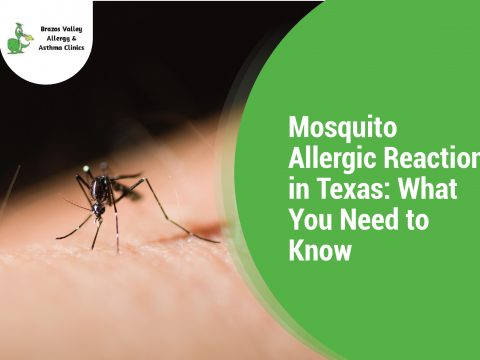- 979-485-9287
- office@bvallergy.com
-
 979-251-7804
979-251-7804
Gluten Intolerance, Celiac Disease, or a Wheat Allergy

Common Pet Allergy Symptoms and How to Recognize Them
May 1, 2024
Beating Grass Pollen Allergies in Texas: Tips and Strategies
May 29, 2024Have you ever experienced that bloated feeling after devouring your favorite pasta dish or breadbasket? Or maybe you’ve noticed some symptoms that just won’t quit? Understanding the world of gluten intolerance, celiac disease, and wheat allergy can bring relief, empowering you to take control of your health and well-being.
Together, let us dive into the world of gluten-related diseases and discover actionable tips to reclaim your vitality. Learn from expert insights and practical advice to empower you to live your best, gluten-free life.
What’s the Difference Between Gluten Intolerance, Celiac Disease, and Wheat Allergy?
Ever wonder why some people can’t seem to handle that fluffy wheat bread while others gobble it up without a second thought? It all boils down to how your body reacts to gluten, a protein found in wheat and similar grains.
Gluten-related disorders (GRDs) are prevalent conditions affecting the gastrointestinal tract, with an estimated global occurrence ranging from 1% to 1.4%. Among these disorders, celiac disease (CD) stands out as the most prominent, and its prevalence has been on the rise in recent times.
But here’s the kicker: not all gluten-related issues are the same.
-
Gluten Intolerance
Gluten intolerance, often called non-celiac gluten sensitivity, happens when the body reacts adversely to gluten, a protein in wheat, rye, and barley. It differs from celiac disease, which is an autoimmune condition. In gluten intolerance, no immune system reaction harms the body’s tissues. Instead, it triggers various symptoms, primarily centered around the digestive system.
Gluten Intolerance Symptoms:
- Digestive Discomfort
- Headaches and Fatigue
- Joint Pain
- Skin Problems (eczema or rashes
- Mood Disturbances
Unlike celiac disease, which can be confirmed through blood tests and intestinal biopsies, there are no specific tests for gluten intolerance. Instead, diagnosis often relies on eliminating gluten from the diet and monitoring for symptom improvement.
While the exact cause of gluten intolerance remains unclear, researchers believe multiple factors contribute to its development. These may include:
-
Genetics
Like celiac disease, gluten intolerance may have a genetic component, with specific gene variants predisposing individuals to react adversely to gluten.
-
Immune System Activation
Although gluten intolerance does not involve an autoimmune response like celiac disease, it may still trigger an immune reaction in some individuals. This immune response could contribute to the symptoms experienced.
-
Gut Health
Your gut health’s microbiome may play a role in gluten intolerance. Disruptions in gut bacteria balance or intestinal permeability (leaky gut) could increase susceptibility to gluten-related symptoms.
-
Celiac Disease
Celiac disease isn’t just a case of an upset stomach – it’s an autoimmune disorder characterized by the body’s immune system launching an all-out assault on the lining of the small intestine in response to gluten ingestion. When gluten enters the system of someone with celiac disease, it triggers an inflammatory response. This response, orchestrated by the immune system, damages the delicate lining of the small intestine, impeding its ability to absorb essential nutrients. Over time, this relentless assault may lead to a host of long-term complications, including malnutrition, infertility, and an elevated risk of certain cancers.
Celiac Disease Symptoms:
- Digestive discomfort
- Headache
- Fatigue
- Itchy rash (dermatitis herpetiformis)
- Tingling and numbness in your hands and feet
- Problems with coordination, balance, and speech
-
Wheat Allergy
A wheat allergy happens when the immune system reacts too strongly to specific proteins in wheat. If someone with a wheat allergy eats wheat or breathes in wheat particles, their immune system thinks these proteins are dangerous, like how they react to bacteria or viruses. In reaction, the body’s defense system produces immunoglobulin E (IgE) antibodies to combat what it sees as a danger.
These IgE antibodies trigger the release of histamine and other chemicals, which leads to the typical allergic symptoms. This cascade of events may result in various reactions, such as those listed below.
Symptoms:
- Mild itching
- Hives
- Swelling, difficulty breathing
- Anaphylaxis
Read More: Know the Difference Between Wheat Allergy and Gluten Intolerance
Embracing a Wheat-Free Diet

So, you’ve made the connection between gluten and your symptoms – now what? It’s time to bid farewell to wheat and embrace a life free from gluten’s grasp. Here are some tips to get you started:
1. Read Food Labels
Gluten lurks in the sneakiest places, from soy sauce to salad dressings. Get in the habit of scanning labels like a hawk to avoid any unwanted surprises.
2. Explore Gluten-Free Alternatives
Thankfully, the world of gluten-free eating has exploded in recent years, offering various delicious alternatives. From quinoa to cauliflower crust pizza, there’s a new world of flavors and textures to explore, giving you hope and optimism about your dietary changes.
Read More: Food Allergies vs. Intolerance: What’s the Real Culprit?
3. Consult with Expert Allergists
Remember, you don’t have to navigate this journey alone. Seek the guidance of a trusted allergist or an allergic clinic near you, like those here in Giddings, TX. They’ll provide the reassurance and support you need to regain control of your health, whether it’s allergy testing, dietary counseling, or symptom management.
Embrace a Gluten-Free Lifestyle Today!
In a state where BBQ brisket and flour tortillas reign supreme, it’s easy to overlook the impact that gluten-related disorders can have on your health. From the subtle symptoms of gluten intolerance to the debilitating effects of celiac disease, these conditions may take a toll on your quality of life. By understanding the signs, embracing a wheat-free diet, and seeking help from allergy clinics in Giddings, TX, you can take control of your health and embark on a journey toward wellness. Don’t let gluten hold you back – reclaim your vitality and savor every moment without hesitation.
Ready to take control of your health and discover if gluten intolerance, celiac disease, or wheat allergies are holding you back? Don’t wait any longer—reach out to Brazos Valley Allergy and Asthma Clinics at 979-485-9287 or click the “Book an Appointment” button today to schedule your consultation. Let’s work together to unlock the path to a healthier, gluten-free lifestyle!




